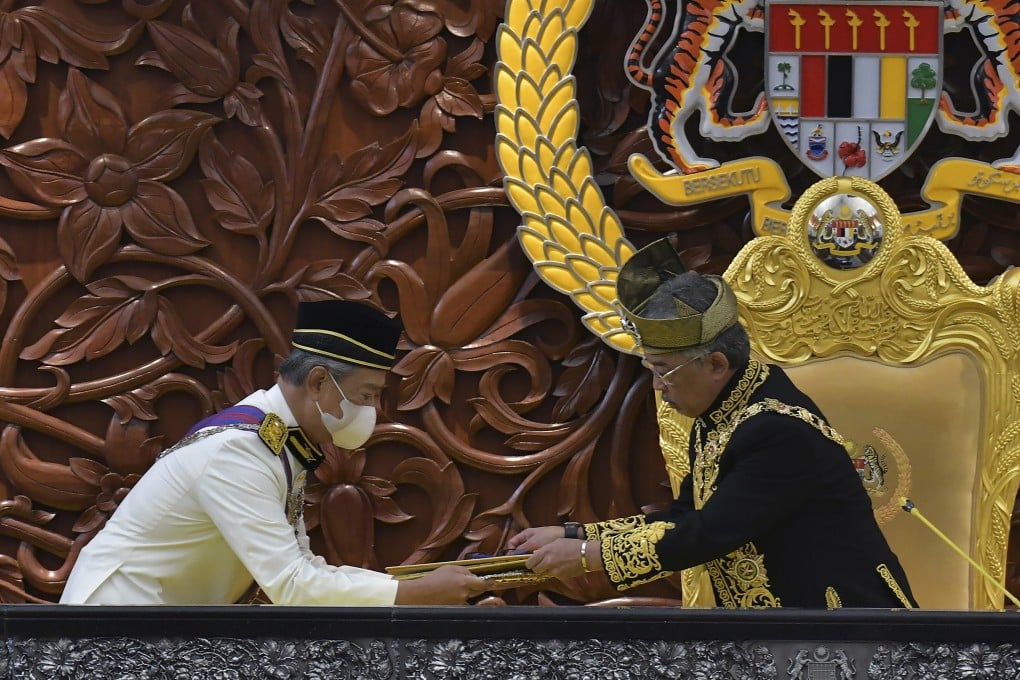Malaysia’s Muhyiddin battles for political life as royal peace offering fizzles, key ally pulls support
- The PM has reportedly convened an emergency meeting of high-ranking loyalists after heavyweights in key coalition ally Umno withdrew their backing
- Muhyiddin is also facing accusations of acting insolently against the country’s influential king, Sultan Abdullah Sultan Ahmad Shah

Local media reported that the 74-year-old leader called an emergency meeting of key lieutenants from his Perikatan Nasional government late on Tuesday, amid political analysts’ predictions that he could find himself increasingly isolated in the coming days – forcing him to finally step aside.
Earlier in the day, Muhyiddin had sought to walk back his refusal to allow a parliamentary debate on a just-ended Covid-19 state of emergency – a position that put him on a collision course with the king, Sultan Abdullah Sultan Ahmad Shah, who had explicitly called for such a discussion.
Critics who had earlier charged that Muhyiddin had acted in an insolent manner towards the country’s revered royal institution appeared unmoved by the prime minister’s pledge that the matter would be debated in September.
Among those who dismissed Muhyiddin’s peace offering were heavyweights from the United Malays National Organisation (Umno), which props up the premier’s ruling coalition.
Eleven out of 38 Umno MPs said on Tuesday evening that they were pulling support for the government with immediate effect, citing the stand-off with Sultan Abdullah as among the reasons for their decision. Among those who withdrew their support for the government was the